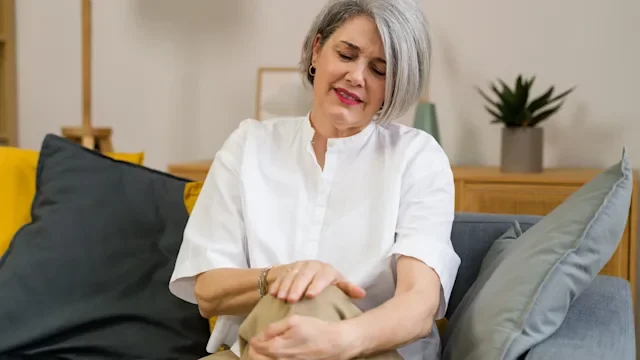Key takeaways:
When essay writer Ken Devoe was diagnosed with Crohn’s, a type of chronic inflammatory bowel disease, he had never heard of it. That was 1987.
Today, Ken credits his doctors, his wife, and his positive attitude with saving his life.
He says one of his biggest lessons has been to let go of small disappointments and concentrate on the big picture.
Were it not for the heroic efforts of two brilliant doctors, the love and support of my wife, and an eye-opening revelation about the power of positive thinking, I simply would not be alive today.
What was wrong with me? I had no clue
My journey began in early 1987. I was turning 40, in good health, and blessed with a wonderful wife and a newborn son. All was right with the world — until I became severely ill.
Whenever I ate, it felt as if razor blades were traveling through my digestive system. The pain was excruciating. I stopped eating, lost weight at an alarming rate, was severely dehydrated, and got weaker by the day. But the worst part was not knowing why.

I made several trips to my doctor’s office, each time feeling significantly worse. My doctor passed it off as a viral infection. And I could not see a specialist without a referral, which my provider declined to give me. At that time, my health insurance was through a health maintenance organization (HMO) that covered 100% of my expenses, provided I selected a participating primary care physician to be the gatekeeper of my healthcare.
I deteriorated rapidly.
The turning point
One morning, I was once again at my doctor’s office, lying on the exam table in agony. Unbeknownst to me, a renowned gastroenterologist — Suzanne Lagarde — was in the building. If she wasn’t there then, I wouldn’t be here now. She walked by, saw my discomfort, examined me on the spot, and said, “You’re going to the hospital. Now!” She told me and my wife that I had advanced Crohn’s disease.
All I could think was, “Wait, what?”
I’d never heard of Crohn’s disease and, at that time, not even medical professionals knew much about it. Even today, no one knows what causes it. There’s no cure, only treatments with varying degrees of effectiveness.
Crohn’s disease is an inflammatory bowel disease (IBD) that can be debilitating. The symptoms include severe abdominal pain, diarrhea, weight loss, and malnutrition. And I had them all.
- EntocortBudesonide
- Azulfidine En-TabsSulfasalazine DR
- Exclusive discountAdalimumab-adbm
They rushed me to the hospital, put in a central line, and pumped me full of steroids. But nothing helped. They took nightly X-rays of my lower abdominal area that showed no change. Then, one night, the radiologist on duty noticed something on the latest X-ray. My colon had ruptured.
I was told I needed surgery immediately. Otherwise, I would not survive the night. The hospital called my wife, Cindy, who rushed there. They contacted the surgeon on call — who, to my good fortune, was one of the country’s most skilled general surgeons — Bernie Siegel.


As they wheeled me into the operating room, I was sedated, and my sense of humor kicked in. I started humming the theme song to the then-popular hospital drama “St. Elsewhere.” But when they placed me on the operating table, my humor vanished. I suddenly thought I might not survive the surgery. For the first time in my life, I confronted my own mortality and was terrified.
I woke up in the recovery room 10 hours later, heavily bandaged and hooked up to a variety of devices. I couldn’t move or speak. I felt totally helpless. Then began the long road to recovery from the surgery — but not the disease, which is chronic and will always remain with me.
The surgeon had to remove 90% of my colon because the tissue was diseased. (On the plus side, with almost no colon, I’ll never be constipated again!) I was given a temporary ileostomy — a bodily portal covered by a bag to collect my stools. I say “temporary” because, 6 months later, Dr. Siegel reconnected what was left of my colon to my small intestine so I could go to the bathroom “normally.” I spent the first 3 of those months lying in a hospital bed, trying to urge my digestive system to work again. But, week after week, there was no change.
I had the sinking feeling I would never get better. But thanks to my two exceptional doctors — and an attitude adjustment on my part — I did.
My gastroenterologist, Dr. Lagarde, managed my care and advocated for me every step of the way. If the hospital was slow to perform a test, she’d storm into the lab, demand immediate action, and get it. She let nothing slip through the cracks.
And Dr. Siegel was amazing in his own right. He cared about his patients — not just as patients but also as people. Instead of making the rounds, popping in with a perfunctory “how are you doing,” and leaving, he would stay with me as long as I wanted. He’d hold my hand and ask me how I was feeling — not just physically but also emotionally.
Every so often, I’d look at him, crying, and ask, “Why am I not getting better?”
He’d tell me, “Remember, you are extremely ill. This will take time. You will improve. Don’t lose hope.”
There was something soothing about his manner that made me feel better every time he visited. He kept my spirits up. And that, perhaps more than anything — other than the support of my wife — pulled me through. He’s long since retired, but his work lives on. And I learned a lot from him.
Lessons that got me through this crisis
Much of what I learned about dealing with a chronic condition can be summed up with these themes:
Stand up for yourself as a patient. Don’t accept whatever your doctor tells you at face value if you think it’s not right and not helping you.
Be honest. If a doctor asks how you feel, don’t just say you’re fine if you’re not. If something’s wrong, say so.
Don’t ignore pain. It’s your body’s way of telling you something is wrong.
Don’t feel sorry for yourself. Concentrate on what will make you better.
Attitude has immense healing power. If your attitude is positive, it can help heal you — or do the opposite if it’s not.
Concentrate on the big picture. Ignore life’s little irritations and disappointments: a promotion you didn’t get, your favorite team losing a game, getting a flat tire. These are trivial. Focus on what’s really important in life. You’ll be happier and healthier as a result.
I am blessed to still be here — blessed with the care of phenomenal doctors and the unconditional love and support of my wife, who got me through everything and continues to do so to this day. I hope that, if you are ever in crisis, you will be as fortunate as I have been.

Why trust our experts?

















